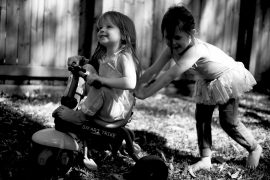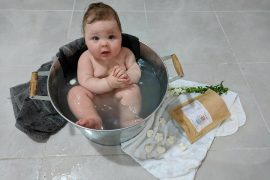By Becky Cashman
I cut up the toast before I put the cheese on it, and for that I would pay.
You see, Isaac (age 5) wanted the cheese on the toast BEFORE it was cut.
But there was no going back- 8 quarters were on the plate in front of me. Isaac was working into a roar.
He would rather starve than eat what I’d prepared.
I thought, “Thank you for my life.”
I’d been using that sentence all week at various times of the day. It delighted me. It was a line that came from Life of Pi, a movie that I’d seen a week ago.
Pi is a teenage boy on a lifeboat in the middle of the ocean. His circumstances are desperate and his survival doubtful. Months into his time on the boat, he says, “Thank you for my life.”
I could feel the power of that statement as soon as he said it. I’d been rolling it round my mind all week.
But this time, when I said it, instead of delighting me, it annoyed me.
The truth was, I felt angry, and grabbing for my new favorite “thinking” felt more like a weapon.
It reminded me of childhood days of “be grateful for your food, there are people starving in Africa.” Or, “how can you be depressed, you have a brand new gorgeous baby.”
In this case, if Pi can be grateful for his life stuck on a lifeboat in the middle of the ocean, I can be grateful NO MATTER WHAT.
But that was my mistake. Pi did not feel grateful the WHOLE time he was on the lifeboat. He felt everything. In feeling everything, he learned about himself and his relationship to life and to God.
I was watching a little boy winding up for battle. I did not feel grateful. In fact, I felt angry too.
I realized that I could not take care of myself as well as take care of my son in his tantrum.
I walked away, telling him, “I feel angry,” along with some of my own childish banging of kitchen utensils. Immediately I felt the rightness of saying something true.











